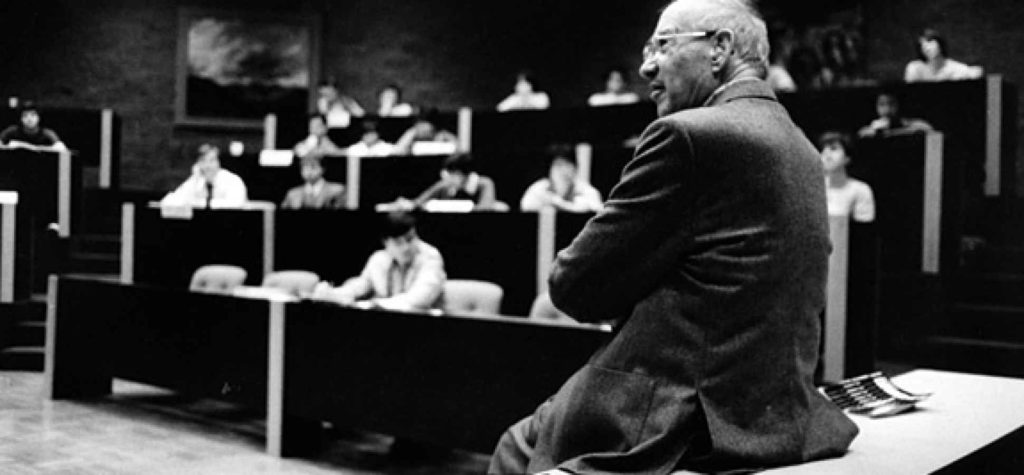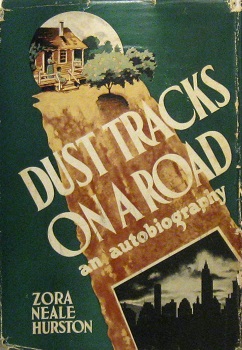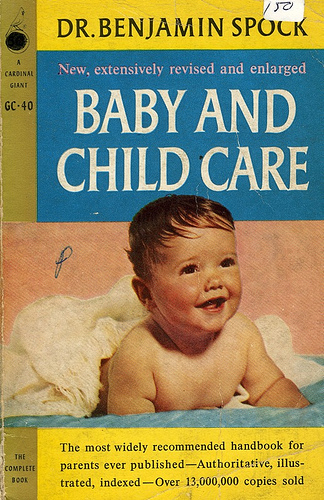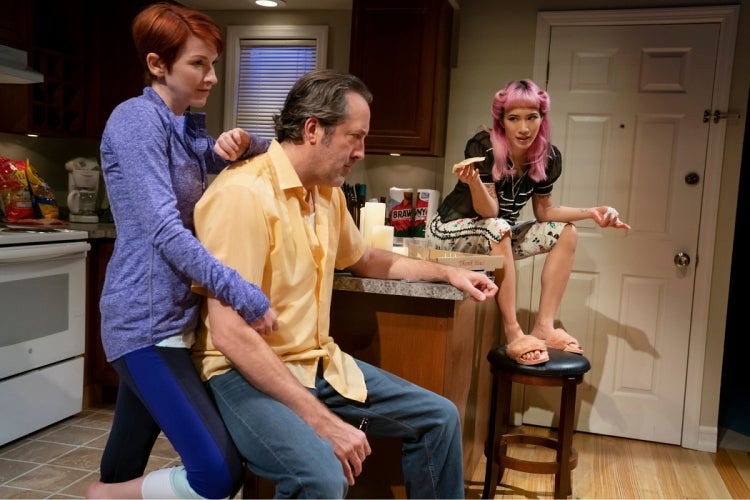“In hatred as in love, we grow like the thing we brood upon. What we loathe, we graft into our very soul.”
Mary Renault, The Mask of Apollo
Terry Teachout on the arts in New York City
“In hatred as in love, we grow like the thing we brood upon. What we loathe, we graft into our very soul.”
Mary Renault, The Mask of Apollo
• The book I am currently reading. John Stangeland’s Warren William: Magnificent Scoundrel of Pre-Code Hollywood.

• The book that changed my life. Peter Drucker’s Adventures of a Bystander. No book in any genre has done more to shape the way in which I look at and think about the world. In addition, I have also read Irving Babbitt’s Democracy and Leadership repeatedly and thought about it deeply.
More specifically, I’ve never learned more from a single published sentence than I did about Jews, Jewish culture, and the Jewish sense of humor (if you want to call it that) from the opening line of Isaac Bashevis Singer’s Enemies, a Love Story: “Although I did not have the privilege of going through the Hitler holocaust, I have lived for years in New York with refugees from this ordeal.”
• The book I wish I’d written. James Gould Cozzens’ Guard of Honor. I have no gift for the writing of fiction, but if I did, that’s the kind of novel I’d like to write.
• The book that had the greatest influence on my writing. Reading Edmund Wilson’s Classics and Commercials taught me how to be a critic. Reading Fairfield Porter’s Art in Its Own Terms and The Film Criticism of Otis Ferguson taught me how to be a better one.

• The book I think is most under/overrated. I think Peter DeVries’ The Blood of the Lamb is one of the half-dozen greatest American novels of the twentieth century. I’m also a fervent admirer of Zora Neale Hurston’s Dust Tracks on a Road: An Autobiography, though it’s more widely read today than it used to be, meaning that it probably no longer qualifies for “underrated” status.
As for overrated…well, I wouldn’t even know where to start. Most books are overrated, don’t you think?
• The book that changed my mind. David R. Dow’s Autobiography of an Execution. Prior to reading it, I was a supporter of the death penalty. Afterward, I wasn’t.
• The last book that made me cry. Jon Hassler’s North of Hope, a funny, touching novel about a Roman Catholic priest suffering from depression who meets up in the middle of life with a woman on whom he had a hopeless crush when they were both in high school. (No, they don’t.)
• The last book that made me laugh. I scarcely ever laugh out loud when reading. Five books that did make me do so, however, are Kingsley Amis’ Lucky Jim, Anthony Bourdain’s Kitchen Confidential, P.J. O’Rourke’s Give War a Chance, Dawn Powell’s The Locusts Have No King, and Honor Tracy’s The Straight and Narrow Path.
• The book I couldn’t finish. Bleak House. I did my damnedest, but to no avail. I’ll take Trollope over Dickens any day.
• The book I’m most ashamed not to have read. I don’t do that kind of shame. That said, I wish I spent more time reading poetry. The only poets to whose work I now return with anything like regularity are Hardy, Yeats, Auden, and Larkin.

• My earliest reading memory. I taught myself to read at the age of three, and so cannot remember a time when I wasn’t reading for pleasure, or found any pleasure in children’s books. (Laura Ingalls Wilder’s novels of pioneer life were read out loud to me in elementary school.) Believe it or not, though, the very first book I can clearly remember reading and enjoying was my mother’s well-thumbed paperback copy of Benjamin Spock’s Baby and Child Care. I was fascinated by the chapters on childhood diseases.
• My comfort read. I often turn to Patrick O’Brian’s Aubrey-Maturin novels, Rumer Godden’s In This House of Brede, Anthony Powell’s A Dance to the Music of Time, and the novels of William Haggard, Elmore Leonard, John P. Marquand, Edwin O’Connor, and Rex Stout in times of stress. (I also like to relax with biographies of classical musicians, God knows why.)
• The book I give as a gift. The Library of America’s one-volume edition of Flannery O’Connor’s Collected Works, which I like to give to young friends who’ve never read O’Connor. (She is one of the writers who means most to me.) In addition, I’ve also given out quite a few copies of two of my own books, Pops: A Life of Louis Armstrong and All in the Dances: A Brief Life of George Balanchine.
• The book I’d most like to be remembered for. Pops, I guess, though I’m also very proud of A Terry Teachout Reader.

The thirty-ninth episode of Three on the Aisle, the twice-monthly podcast in which Peter Marks, Elisabeth Vincentelli, and I talk about theater in America, is now available on line for listening or downloading.
After a string of podcasts for which one or the other of us was either AWOL or not in the studio, Peter, Elisabeth, and I were all in the same place at the same time to tape this episode. No guest this time around—we dipped into our mailbag to answer reader mail, but otherwise we chatted amongst ourselves.
Here’s American Theatre’s “official” summary of the proceedings:
To listen to or download this episode, read more about it, or subscribe to Three on the Aisle, go here.This week, the critics discuss the Yondr pouch phenomenon, actor impersonations of real people, and long-running shows gone stale. A heated discussion of Slave Play and a handful of other recent shows follows.
In case you’ve missed any previous episodes, you’ll find them all here.
Janet Baker sings Berlioz’s “Le spectre de la rose” (from Nuits d’été) with Herbert Blomstedt and the Danish Radio Symphony Orchestra in 1972:
(This is the latest in a series of arts- and history-related videos that appear in this space each Monday, Wednesday, and Friday)
“It is better to believe in men too rashly, and regret, than believe too meanly.”
Mary Renault, The Persian Boy
* * *
“Linda Vista,” Tracy Letts’ serious comedy about the midlife crisis of a newly divorced man who doesn’t know how to listen to women—or anyone else, for that matter—was first performed in 2017 by Steppenwolf Theatre Company, at which time I wrote in this space that it “might just be Mr. Letts’ best play yet.” Dexter Bullard’s premiere production of “Linda Vista,” in which Ian Barford gave a totally convincing performance, at once repellent and sympathetic, has finally made it from Chicago to Broadway courtesy of Second Stage Theater, somewhat revised but with nearly all of the original cast intact, and I can confirm that my first impression was on the mark: “Linda Vista” really is that good.

Mr. Barford plays Wheeler, a 50-year-old liberal misanthrope with conservative cultural tastes who, having blown up a perfectly good marriage, proceeds to blow up an equally good relationship with an earnest but very nice “life coach” (Cora Vander Broek) when he meets and falls for Minnie (Chantal Thuy), a twentysomething Vietnamese-American “rockabilly girl.” While you feel for Wheeler, you also know that his troubles are his own fault, and much of the strength of “Linda Vista” lies in the fact that Mr. Letts never lets him wriggle off the hook of his own character…
* * *
Read the whole thing here. To read my Wall Street Journal review of the original 2017 Chicago production of Linda Vista, go here.The trailer for the original Steppenwolf Theatre Company production of Linda Vista:
Stéphane Grappelli and George Shearing play “Sweet Georgia Brown” in Stéphane Grappelli and His Quartet. Dave Goldberg is the guitarist, Coleridge Goode the bassist, and Ray Ellington the drummer. The film, directed by Horace Shepherd, was made in London in 1948:
(This is the latest in a series of arts- and history-related videos that appear in this space each Monday, Wednesday, and Friday)
“Power is so pleasant that men quickly learn to be greedy in the enjoyment of it, and to flatter themselves that patriotism requires them to be imperious.”
Anthony Trollope, The Prime Minister
| M | T | W | T | F | S | S |
|---|---|---|---|---|---|---|
| 1 | 2 | |||||
| 3 | 4 | 5 | 6 | 7 | 8 | 9 |
| 10 | 11 | 12 | 13 | 14 | 15 | 16 |
| 17 | 18 | 19 | 20 | 21 | 22 | 23 |
| 24 | 25 | 26 | 27 | 28 | 29 | 30 |
| 31 | ||||||
An ArtsJournal Blog